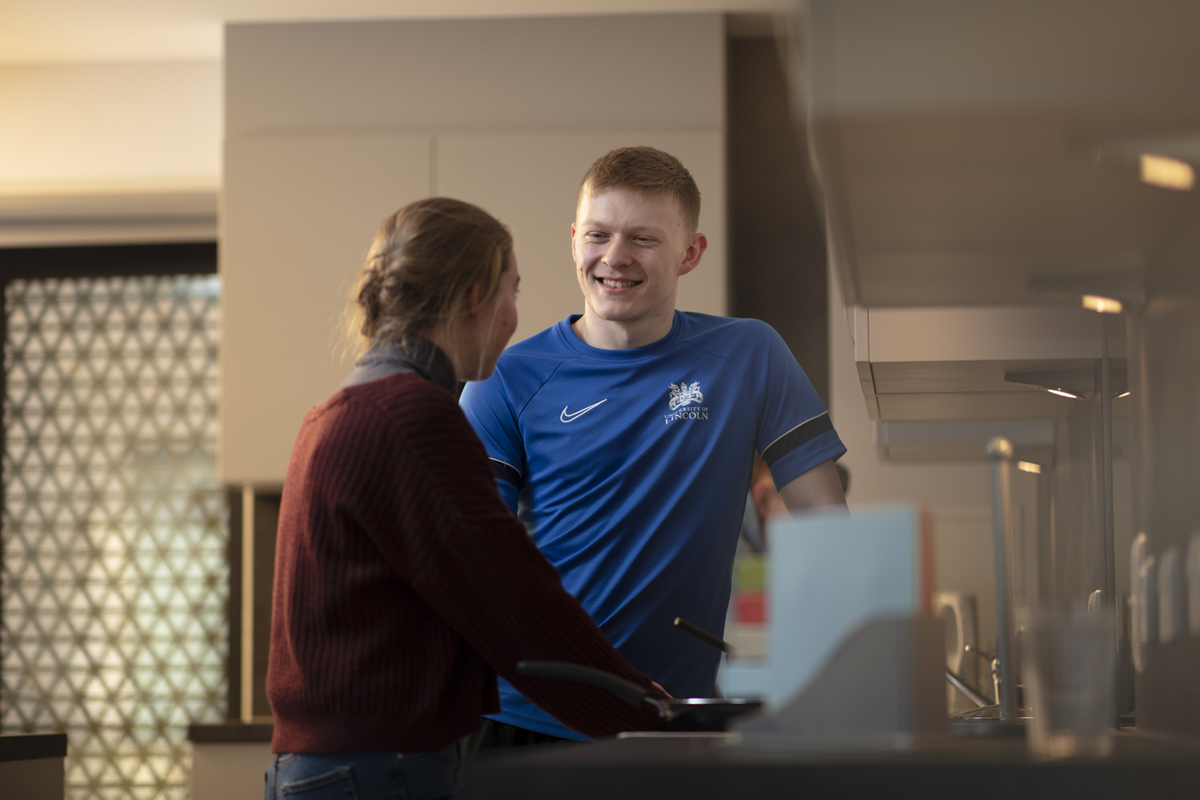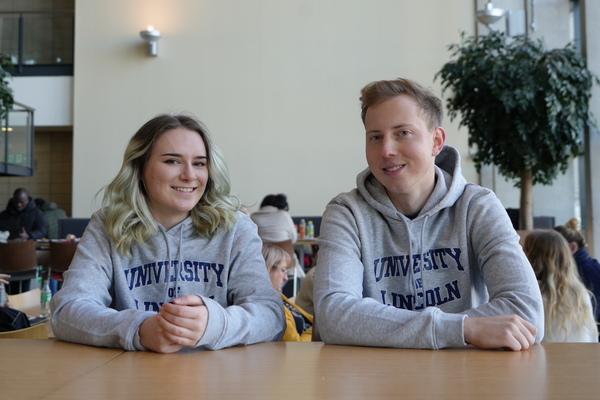Scholarships and Bursaries
We offer a range of merit-based and subject-specific scholarships and bursaries for eligible undergraduate students going to university for the first time.

/prod01/university-of-lincoln-cdn-pxl/media/responsive2017/images/students/UofL,Jan23,501,by,Electric,Egg,eggr4400.jpg )
Undergraduate
We know that going to university is a big step and many families are considering their options with the rising cost of living. At Lincoln, we believe that your financial background should never be a barrier to higher education. In addition to a wide range of loans, allowances, and scholarships and bursaries, our great location, affordable accommodation options, and our city's competitive prices make Lincoln a great place to study.
Thanks to our location in the heart of the city centre, almost everything our students could need is within walking distance, meaning they don’t need to worry about bringing a car or catching public transport to get around, helping them to save money.
Our affordable accommodation options shouldn’t break the bank either, with prices starting from as little as £99 a week (for non en-suite Lincoln Courts, 2024–25). The cost of food, drinks, and social activities are competitive in Lincoln, and our new LinCard can help by offering up to 15 per cent cashback on everyday essentials and special occasion purchases at many high street and online retailers.
The University of Lincoln and the Students’ Union have created a dedicated hub which provides a range of helpful information and advice on how to help you manage your finances, and the support available if you’re struggling.
We offer a range of merit-based and subject-specific scholarships and bursaries for eligible undergraduate students going to university for the first time.

In the UK, university students are classified as either Home or Overseas students in relation to the cost of tuition fees. Your student status, and therefore the level of tuition fee you are required to pay, is determined by your nationality and the country where you usually live.
UK full-time student tuition fees for undergraduate entry at the University of Lincoln in the 2025/26 academic year are £9,535 per year*. Most students cover the cost by applying for a Tuition Fee Loan, which is paid directly to the University.
If you are starting your studies in 2025, repayments for your student loan will not begin until you finish your studies and are earning at least £25,000 a year*. The amount you repay will depend on how much you earn, regardless of what you borrow. The current rate is nine per cent of income above £25,000 and repayments are made automatically through the tax system. Interest rates are based on the retail price index (RPI) and any outstanding repayments will be written off after 40 years.*
Tuition fees for international students will vary depending on the type of programme and study level you choose. For more information about fees and funding for international students, visit our international webpages.
*Fee and repayment terms are subject to change in line with government policy.
Students can also apply for a means-tested Maintenance Loan of up to £10,227 per academic year (for 24/25 academic year), which would be paid into your bank account in instalments at the start of each term. The exact amount students can borrow depends on your family’s income, where you live, what year of study you’re in, the course you will be studying, and if you are studying full-time or part-time. Please note that the fees and funding system differs for part-time and international students.

Disabled Students’ Allowance (or DSA) provides extra help for students who have a diagnosed disability which may cause them difficulty with fully engaging in all elements of their academic studies.
You may claim DSA in addition to your student finance loans and grants to cover any extra study related costs you incur due to a disability, mental health condition, or learning difficulty (such as dyslexia or dyspraxia).
DSA provides funding for specific equipment, non-medical help, and general allowances which are recommended by an Assessor and agreed by your sponsor. The amount you will receive depends on your individual needs, and does not need paying back.
If you're looking to work to support you while you study, our Campus Jobs Service can help you find work, earn money, and develop employability skills, all while balanced around your studies. You can apply for as many roles as you wish and will be supported through the recruitment process by our Campus Jobs Team.

If your tuition fees are not paid by a sponsor or directly by Student Finance, you will need to pay them yourself. Visit our How to Pay pages to find out more about the process and accepted payment methods.